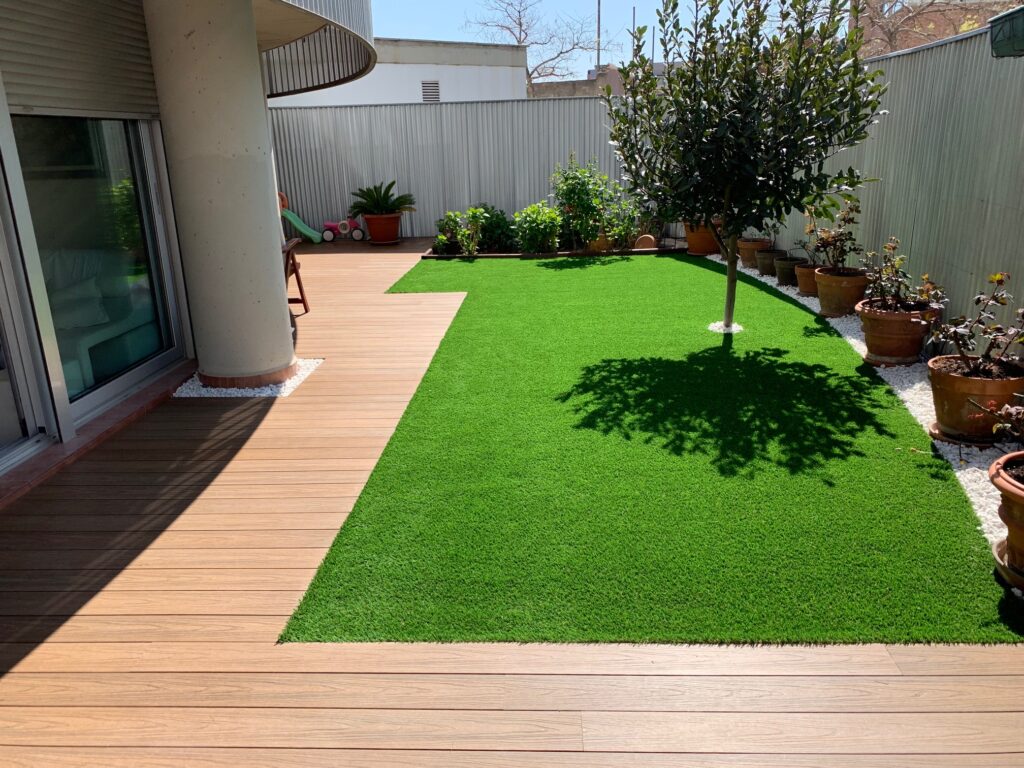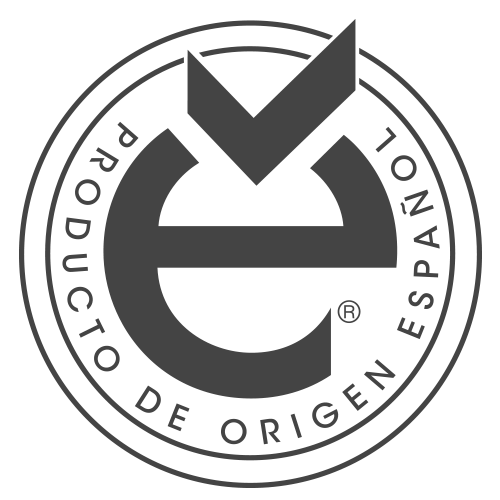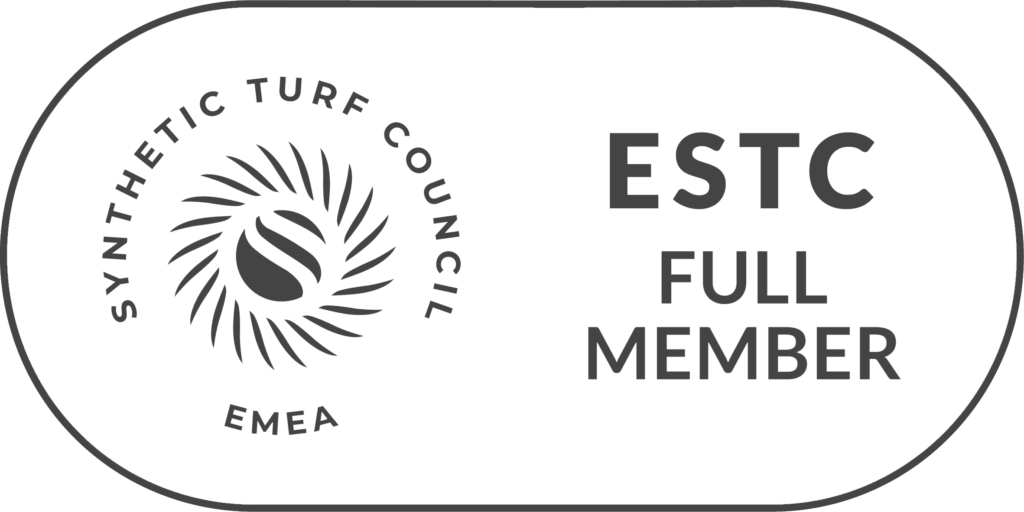Polypropylene: A Versatile Choice in Artificial Turf
Polypropylene is another common material in artificial turf manufacturing, known for its light weight, moisture resistance and low cost. Although it does not offer the same softness or durability as polyethylene or nylon, polypropylene remains a popular choice for specific applications where economy and functionality are priorities.
What is polypropylene?
Polypropylene is a petroleum-derived thermoplastic polymer widely used in various industries. In artificial turf, it is mainly used for the manufacture of fibers and secondary bases, due to its resistance to water and its ability to withstand extreme temperatures.
Advantages of polypropylene artificial turf
- Economic:
- It is more affordable compared to other materials such as nylon or polyethylene, making it an ideal choice for projects with tight budgets.
- Lightweight and easy to handle:
- Its light weight facilitates transport and installation.
- Moisture resistant:
- It does not absorb water, which makes it suitable for areas with high exposure to liquids.
- Variety of uses:
- Used in both fibers and structural elements of artificial turf.
Limitations of polypropylene in artificial turf
- Less softness:
- Polypropylene fibers are stiffer, which may be less comfortable for recreational or residential uses.
- Limited durability:
- It has lower resistance to heavy traffic and frequent wear and tear, making it less suitable for high traffic areas.
- Less natural appearance:
- Compared to polyethylene, it may have a less realistic finish.
Common uses for polypropylene artificial turf
- Decorative zones:
- Ideal for areas where the lawn will not be walked on frequently, such as vertical gardens or ornamental spaces.
- Temporary events:
- Perfect for ephemeral applications, such as exhibitions or fairs, due to its low cost and ease of installation.
- Projects with tight budget:
- A practical option for those looking for basic functionality without investing too much.
Polypropylene artificial turf maintenance
- Regular cleaning:
Removes leaves, dust and other debris to maintain its appearance. - Occasional brushing:
Although polypropylene has less flexibility to regain its shape, light brushing can improve its appearance. - Avoid heavy traffic:
To prolong its life, use this type of turf in low-use areas.
Conclusion
Polypropylene is an economical and practical choice for artificial turf in decorative or low-use applications. Although it lacks the softness and durability of materials such as polyethylene or nylon, its moisture resistance and low cost make it an ideal alternative for specific projects.
- Polypropylène
Polypropylène : un choix polyvalent pour le gazon artificiel
Le polypropylène est un autre matériau courant dans la fabrication des gazons artificiels, connu pour sa légèreté, sa résistance à l'humidité et son faible coût. Bien qu'il n'offre pas la même souplesse ou durabilité que le polyéthylène ou le nylon, le polypropylène reste un choix populaire pour des applications spécifiques où l'économie et la fonctionnalité sont des priorités.Qu'est-ce que le polypropylène ?
Le polypropylène est un polymère thermoplastique dérivé du pétrole, largement utilisé dans diverses industries. Dans le domaine du gazon artificiel, il est principalement utilisé pour la fabrication de fibres secondaires et de bases, en raison de sa résistance à l'eau et de sa capacité à supporter des températures extrêmes.Avantages du gazon artificiel en polypropylène
- Économique:
- Il est plus abordable que d'autres matériaux tels que le nylon ou le polyéthylène, ce qui en fait un choix idéal pour les projets à budget serré.
- Léger et maniable:
- Son poids léger le rend facile à transporter et à installer.
- Résistant à l'humidité:
- Il n'absorbe pas l'eau, ce qui le rend adapté aux zones fortement exposées aux liquides.
- Variété d'utilisations:
- Utilisé dans les fibres et les éléments structurels du gazon artificiel.
Limites du polypropylène sur le gazon artificiel
- Moins de douceur:
- Les fibres de polypropylène sont plus rigides, ce qui peut être moins confortable pour des utilisations récréatives ou résidentielles.
- Durabilité limitée:
- Il résiste moins bien au trafic intense et à l'usure fréquente, ce qui le rend moins adapté aux zones à fort trafic.
- Aspect moins naturel:
- Par rapport au polyéthylène, il peut avoir une finition moins réaliste.
Utilisations courantes du gazon artificiel en polypropylène
- Zones décoratives:
- Idéal pour les zones où l'on ne marche pas fréquemment sur le gazon, comme les jardins verticaux ou les espaces ornementaux.
...
- Économique:












